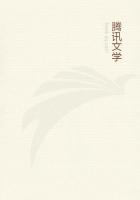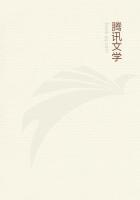During the last two years of his official life,he went over this elaborately with his wife.After being twice written,he tells us,every sentence was carefully weighed and criticised by them both.He intended to make a final revision during the winter of 1858-59.That was not to be given.The book,however,is not only characteristic,but is,from a purely literary point of view,the best of Mill's writings.Mrs Mill died at Avignon from a sudden attack of congestion of the lungs.The blow was crushing.Mill felt that 'the spring of his life was broken.'He withdrew for a time into complete isolation,though he soon found some solace in work.He bought a house at Avignon,and spent half his time there to be near his wife's grave.The rest of his time was spent at Blackheath.His stepdaughter,Miss Taylor,lived with him,and he expresses his gratitude for having drawn two such prizes in 'the lottery of life.'Other friends and disciples were to gather round him in later years.
It is necessary to say something of the woman to whom Mill was thus devoted.Yet it is very difficult to speak without conveying some false impression.It is impossible,on the one hand,to speak too respectfully of so deep and enduring a passion.Mill's love of his wife is a conclusive answer to any one who can doubt the tenderness of his nature.A man who could love so deeply must have been lovable himself.On the other hand,it is necessary to point out plainly certain peculiarities which it reveals.Mill speaks of his wife's excellences in language so extravagant as almost to challenge antagonism.(66)I have already quoted the passage in which he says that her qualities included Carlyle's and his own and 'infinitely more.'In other passages,he seems to be endeavouring to outdo this statement:her judgment,he declares,was 'next to infallible';'the highest poetry,philosophy,oratory,and art seemed trivial by the side of her,and equal only to expressing some part of her mind';and he prophesies that,if mankind continue to improve,their spiritual history for ages to come will be the progressive working out of her thoughts and realisation of her conceptions.'
'Only John Mill's reputation,'said Grote,'could survive such displays.'(67)The truth seems to be that in Mill's grief one exquisite pang came from the thought that his wife had left nothing by which her excellence could be made manifest to others.
The only article which he could call hers was that upon the 'enfranchisement of women,'the prefatory note to which includes the phrases cited.He feels that it would hardly justify his words;and has to add that she would,had she pleased,have excelled it in eloquence and profundity.Even that has to be qualified by saying that she could have written nothing on a single subject which would have adequately shown 'the depth and compass of her mind.'His readers,therefore,have to take his statements on faith,and he tries to make up for the want of proof by vehemence of asseveration.The only way of accepting such utterances fairly.is to regard them as a cry of poignant anguish,not as a set of statements to be logically criticised.
The accumulation of superlatives,meanwhile,has the disadvantage that it leaves us without any distinctive characteristic.The figure invested with such a blaze of light has neither distinct form nor colouring.Mill was,I think,always at his feeblest in describing character,and that was a natural weakness of one who,with all his perspicacity,was essentially a bad judge of men.















